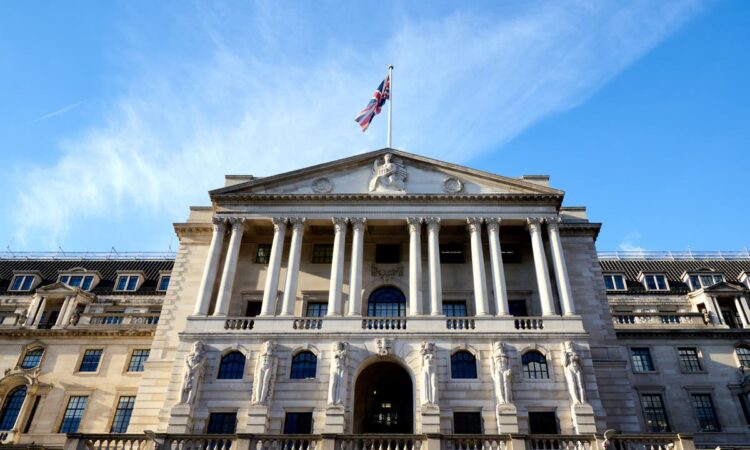
The Treasury and the Bank of England are designing a “digital pound” which could be launched by the end of the decade.
It could start to replace banknotes and coins amid a continued decline in the use of cash.
Efforts by the Government and Bank of England to consider the launch of the digital pound come amid fears over big tech competition in currency.
But what exactly is a “digital pound” and how would it work. Here the PA news agency answers those questions.
What is a digital currency?
A digital pound would be a currency that does not exist as physical money, such as notes or coins.
It only exists in the form of an amount on a computer or similar device.
Nevertheless, the Treasury and Bank of England have stressed that one digital pound would equate to the same value as one physical pound coin.
A central bank digital currency (CBDC) is digital money which can be produced by a central bank, such as the Bank of England.
Is it the same as cryptocurrency?
No. A cryptocurrency is privately issued, by a company such as Bitcoin, and therefore not supported by a central bank.
As most cryptocurrencies cannot be used to widely purchase goods, they are primarily seen as private investments, which can go up and down in value as more people buy or sell the crypto.
The values of cryptocurrency can fluctuate dramatically and there has been a recent slump in valuations, following a pandemic boom in crypto demand, and the recent collapse of crypto exchange FTX.
Why might it be launched in the UK?
Right now, the need for a digital pound is limited as people use their debit cards, phones or even watches to fulfil the same function.
However, there are fears that people might choose to trust big technology or other private sector companies for their money more than the state. Many have speculated that you could see the equivalent of Amazon or Facebook having its own version of sterling.
But unregulated digital currencies could fragment the pound system, meaning £1 might not be worth exactly £1 everywhere.
A CBDC would be intended to offset their concerns, with it being designed to “be reliable and retain value”, according to the Bank of England.
How would I access it?
The CBDC would be issued and held by the Bank of England, rather than a private institution or bank. The user would then store there money in a “digital wallet”.
However, an intermediary, such as a consumer bank or e-commerce business, would be needed to spend the money.
How would it be used?
Exactly how it is used could be altered during the design phase but the intention is that it would be used in a broadly similar fashion to a current bank account.
A computer, phone or other device would be used to make transactions with the digital currency and it would be treated as normal by shops or other businesses.
However, the Bank of England has said it would be intended for customer spending, rather than saving in an account.
How much could I own?
Assuming the UK CBDC gets the go-ahead, UK users would initially be set a limit on how much people could be issued.
The Treasury has also said that any digital pound would exist alongside – rather than replace – cash and bank deposits, meaning people could continue to own cash if there is still a demand.
The House of Lords has previously flagged concerns that there could be financial instability if households or businesses all seek to withdraw money from commercial banks in favour of a state-backed CBDC all at once.
When will it be launched?
The Bank and Treasury have stressed that there is no certainty it will be launched at all.
On Tuesday, a four-month consultation was launched, which will be followed by a lengthy design period.
A final decision is expected to follow the design period from 2025 at the earliest. It could then first be launched in the latter half of the current decade.
Have other countries got digital currencies?
The UK plans are the latest in a raft of countries considering CBDCs.
The Atlantic Council estimated in December that 114 governments were at least exploring CBDCs, with close to 30 governments having full launched or started pilot schemes.
China started public testing of its digital renminbi back in 2021.
CBDCs have also been on the rise in the Caribbean, with programmes launched in the Bahamas and Jamaica designed to improve financial inclusion and clamp down on money laundering.




